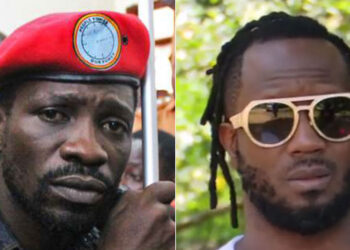Popular Ugandan dancehall artist A Pass, real name Alexander Bagonza, has sparked fresh conversation in the music industry after revealing why he has never paid a deejay to play his songs and why he never will.
In a recent interview with BBS TV, A Pass opened up about his philosophy as an artist, explaining that for him, music should speak for itself. He believes that if a song is good, it should get airplay because it connects with listeners, not because someone was paid to push it.
“I’ve never given money to a deejay to play my music,” A Pass said. “And I never will. Their tip to me is the music. If you love it, play it. If you don’t, that’s okay. You might pay someone, and they’ll only play your song when you’re physically around. What’s the point of that?”
According to the Wuuyo singer, forcing music into the system through money only leads to temporary attention, not real impact. Instead, he focuses on making songs that connect with people and naturally gain traction.
“I focus on making songs that people enjoy,” he continued. “If the music is good, it will hype someone to play it. That’s what matters. Not money.”
His comments come at a time when the relationship between Ugandan artists and deejays remains tense. Many deejays have openly complained that artists don’t appreciate their role in promoting local music and have, in turn, threatened to stop playing Ugandan songs altogether. Some even admitted switching to mostly foreign music, saying Nigerian hits like those from Wizkid and Davido are easier to promote and more rewarding.
A Pass, however, doesn’t buy into that mindset.
“They play Wizkid and Davido all the time, but when have those artists ever paid them to do so?” he asked. “It’s okay if that’s what they want to do, but that attitude doesn’t help our music industry grow.”
He went on to question the logic of Ugandan deejays who prefer promoting international music over supporting homegrown talent.
“Every deejay is supposed to play Ugandan music,” he said. “If we want to grow the industry like the Nigerians have done, then we have to push our own music just like they push theirs.”
According to A Pass, the power of the deejay is real, but it should be used to uplift the local sound, not just recycle hits from outside.
“How will anyone even know they’re in Uganda when all they hear is Amapiano or American rap?” he asked. “You walk into a bar, and it feels like you’re somewhere else. Where’s the Ugandan identity in that?”
The singer stressed that artists and deejays both play an important role in shaping the country’s musical future. But for him, growth starts with integrity, creating good music and playing it because it deserves to be heard, not because it was paid for.
“I’m not against deejays,” A Pass clarified. “But I’m for real music. I respect those who play a song because they genuinely feel it, not because there’s cash attached. That’s how we build something real.”
His message has resonated with many fans online, especially those who feel that Ugandan music deserves more homegrown support. Others, however, argue that deejays also face challenges and need motivation to keep pushing local content.
Still, A Pass remains firm on his stand: good music sells itself, and those who truly care about the industry will always support it, with or without tips.








